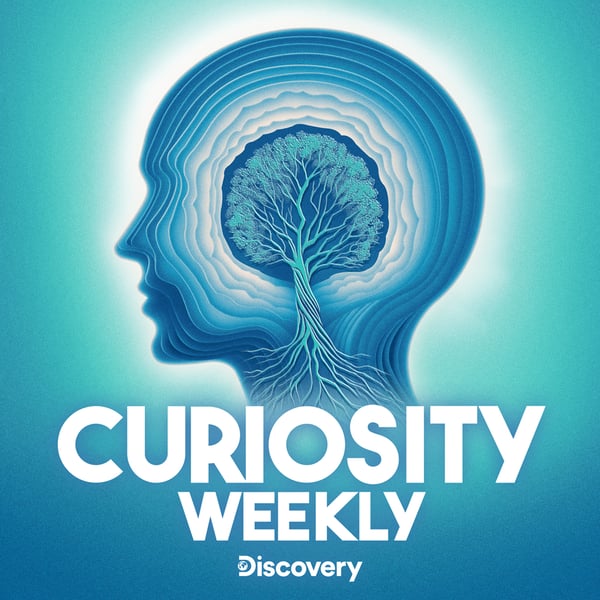5 Coronavirus Myths Debunked, Why You Shouldn’t Get Your News on Social Media, and the Discovery of a Black Hole Missing Link
Curiosity Weekly
Warner Bros. Discovery
4.6 • 935 Ratings
🗓️ 30 April 2020
⏱️ 11 minutes
🧾️ Download transcript
Summary
Learn about why people are less likely to verify their sources on social media; and why it’s a huge deal that researchers found an intermediate-mass black hole. We’ll also debunk five myths about the coronavirus.
Jumbling of sources on social media makes you less likely to verify their validity by Kelsey Donk
- The Ohio State University. (2020, March 30). How social media makes it difficult to identify real news. How Social Media Makes It Difficult to Identify Real News; The Ohio State University. https://news.osu.edu/how-social-media-makes-it-difficult-to-identify-real-news/
- Pearson, G. (2020). Sources on social media: Information context collapse and volume of content as predictors of source blindness. New Media & Society, 146144482091050. https://doi.org/10.1177/1461444820910505
Hubble found a black hole "missing link" by Grant Currin
- Hubble finds best evidence for elusive mid-size black hole. (2020). EurekAlert! https://www.eurekalert.org/pub_releases/2020-03/eic-hfb033120.php
- Lin, D., Strader, J., Romanowsky, A. J., Irwin, J. A., Godet, O., Barret, D., Webb, N. A., Homan, J., & Remillard, R. A. (2020). Multiwavelength Follow-up of the Hyperluminous Intermediate-mass Black Hole Candidate 3XMM J215022.4−055108. The Astrophysical Journal, 892(2), L25. https://doi.org/10.3847/2041-8213/ab745b
5 myths about the coronavirus by Kelsey Donk
- Coronavirus disease (COVID-19) advice for the public: Myth busters. (2018). WHO.int. https://www.who.int/emergencies/diseases/novel-coronavirus-2019/advice-for-public/myth-busters
- White, T. (2020, March 23). Coronavirus misperceptions widespread in early weeks, according to Stanford study - Scope. Scope. http://scopeblog.stanford.edu/2020/03/23/coronavirus-misperceptions-widespread-in-early-weeks-according-to-stanford-study/
- No, the coronavirus wasn’t made in a lab. A genetic analysis shows it’s from nature. (2020, March 26). Science News. https://www.sciencenews.org/article/coronavirus-covid-19-not-human-made-lab-genetic-analysis-nature
- Landon, E. (2020, April 14). COVID-19: What we know so far about the 2019 novel coronavirus. Uchicagomedicine.Org; UChicago Medicine. https://www.uchicagomedicine.org/forefront/prevention-and-screening-articles/wuhan-coronavirus
- Coronavirus Vaccine Development: Scientific Challenges and Timelines with Dr. Julia Schaletzky (COVID-19 Bonus Episode) – Curiosity Daily. (2020, March 29). Curiosity Daily. https://curiositydaily.com/coronavirus-vaccine-development-scientific-challenges-and-timelines-with-dr-julia-schaletzky-covid-19-bonus-episode/
Subscribe to Curiosity Daily to learn something new every day with Cody Gough and Ashley Hamer. You can also listen to our podcast as part of your Alexa Flash Briefing; Amazon smart speakers users, click/tap “enable” here: https://www.amazon.com/Curiosity-com-Curiosity-Daily-from/dp/B07CP17DJY
Find episode transcript here: https://curiosity-daily-4e53644e.simplecast.com/episodes/5-coronavirus-myths-debunked-why-you-shouldnt-get-your-news-on-social-media-and-the-discovery-of-a-black-hole-missing-link
Hosted on Acast. See acast.com/privacy for more information.
Transcript
Click on a timestamp to play from that location
| 0:00.0 | Hi, you're about to get smarter in just a few minutes with Curiosity Daily from Curiosity.com. |
| 0:06.0 | I'm Cody Goff. |
| 0:07.0 | And I'm Ashley Hamer. |
| 0:08.0 | Today you learn about why people are less likely to verify their sources on social media, |
| 0:12.9 | and why it's a huge deal that researchers found |
| 0:15.4 | a medium-sized black hole. |
| 0:17.6 | We'll also debunk five myths about the coronavirus. |
| 0:21.1 | Would satisfy some curiosity. |
| 0:23.4 | We all know we shouldn't get all of our news from Facebook or Twitter, but the reason doesn't |
| 0:28.5 | just come down to the kind of news we see on those sites. It's also about the way we interact with it. |
| 0:35.6 | New research from the Ohio State University suggests that when people get news from the same place |
| 0:40.5 | they get their joke memes and Tik-tocks, they pay less attention to where the content is coming from. |
| 0:46.4 | And that makes them more likely to mistake satire, commentary, or fiction for real credible news. |
| 0:53.0 | Researchers say it's a different story for people who view news divided into categories. |
| 0:58.0 | When people see current affairs and international news set apart from cultural criticism, |
| 1:04.6 | entertainment, and opinions, they can more easily evaluate sources and |
| 1:09.1 | decide whether information is credible. |
| 1:11.5 | It's almost like the newspapers of long ago were onto something. |
| 1:15.2 | People like social media in part because it's so convenient. You can find entertainment and |
| 1:20.8 | long-distance connections in the same place as breaking news. |
| 1:24.3 | It's a one-stop shop. But that selling point is also its weakness. |
| 1:29.1 | The researchers say it's this mixing of content that makes it hard to know what's just for fun |
... |
Please login to see the full transcript.
Disclaimer: The podcast and artwork embedded on this page are from Warner Bros. Discovery, and are the property of its owner and not affiliated with or endorsed by Tapesearch.
Generated transcripts are the property of Warner Bros. Discovery and are distributed freely under the Fair Use doctrine. Transcripts generated by Tapesearch are not guaranteed to be accurate.
Copyright © Tapesearch 2025.

